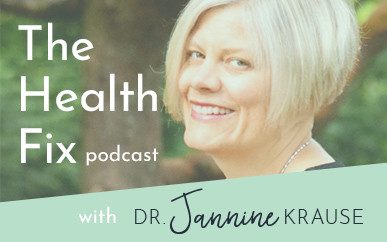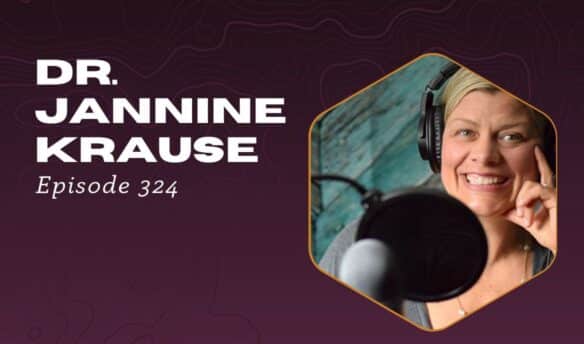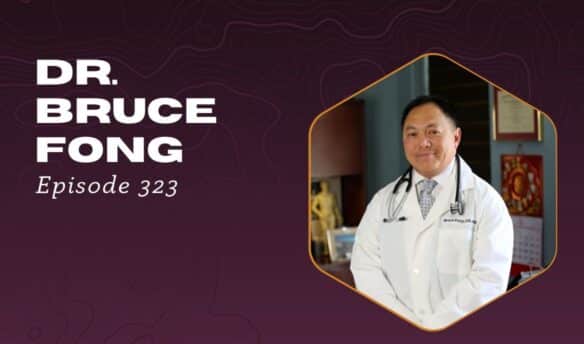Being in constant pain and struggling to recover from workouts is annoying.
Nagging pain can keep you up at night, and interfere with your social life.
Glycine is an amino acid found to help with injuries, inflammation, and workout recovery.
Chronic aches, pains and tweaked muscle feelings are signs you have a glycine deficiency.
Glycine regulates inflammation in the body, relaxes the muscles and even helps with insomnia.
Where Does Glycine Come From?
Glycine is a nonessential amino acid made in your liver.
The busier your liver is dealing with environmental toxins, detoxing from processed foods and alcohol the less glycine you are able to make.
What Does Glycine Do?
Glycine is part of what makes up the elastin and collagen in our tendons, ligaments, tissues, and muscles.
Glycine deficiencies lead to difficulty repairing muscles, tendons and ligaments as well as lowered immunity.
When your immune system is impaired you’re prone to chronic inflammation, which causes you to feel achy after workouts and struggle with recovery.
Glycine works on your immune system response by regulating your white blood cell reactions to prevent them from overreacting and causing an excessive immune system response.
Glycine’s Role in Muscle Repair
You’ve been hitting the gym hard and you have an ache that won’t go away.
Chances are you might have a micro-tears, and glycine can help fix the tears.
Each time you work out hard you’re going to break down some of your muscular tissue.
Some inflammation is normal and glycine is able to keep it in check.
A post-workout ache, particularly in the 48 hours after a tough workout, is normal.
Aches and pains, that last a week keeping you out of the gym, indicate excessive inflammation in your body and are a sign of low glycine levels.
Glycine can control the breakdown of tissue and the rejection after transplantation.
Research shows glycine prevents heart tissue death when administered within an hour after a heart attack.
Glycine is used to regulate kidney and liver damage in organs being transported for organ donors.
Since glycine is very effective for muscle, organ and other tissue repair it makes sense that it would help with sleep since that’s the time the body dedicates to repair.
Glycine Enhances Sleep
Glycine is best taken at night to enhance sleep and tissue recovery.
Glycine boosts another amino acid, serine, and together they exert a calming effect on the brain and improves focus.
Glycine is amazing for shutting down an active brain when you are trying to relax and go to sleep.
Glycine is very effective for anyone who has trouble falling asleep.
Glycine should be taken about two hours before bed in 10-12 oz of water and won’t give you a hangover feeling like melatonin.
Glycine is Great For the Liver
If you’re a weekend warrior, love a good party or maybe you’ve got a party coming up, glycine can help liver function.
Glycine is made by the liver and it also helps the liver function and detox.
If you take glycine after or during alcohol consumption you can reduce your blood alcohol levels and ethanol damage to the liver.
Glycine passes through the stomach, just like alcohol, and can prevent alcohol from getting to the liver.
So if you find yourself drinking consider ending the night with glycine.
Glycine Can Slow Down Cancer
Research shows that melanoma can be slowed down with glycine.
Glycine helps you absorb vitamins and minerals and it has been shown to help prevent cancer.
Excess inflammation in the body can promote cancer.
Glycine is able to shut down chronic inflammation in the body.
In many cases cancer takes time to develop and it’s linked to chronic inflammation over time.
If you could do everything in your power to prevent cancer then why not take glycine on a regular basis since it’s effects are broad for your body.
Can You Get Glycine In Your Diet?
How do you get glycine naturally if you don’t want to take a supplement?
Beans, legumes, lentils, fish, meat and dairy are rich in glycine.
In order for the body to make glycine, it needs an amino acide called choline.
How to get enough choline? Eat these foods:
- Cauliflower
- Mushrooms
- Dark leafy greens
- Shellfish
- Asparagus
- Brussel sprouts
- Bok choy
- Fish
- Liver
Foods that have glycine also tend to have choline. A lot of people avoid eggs, shellfish, and fish and don’t eat enough veggies so it’s possible that you might be choline deficient.
If you struggle to eat these types of foods, you might want to consider supplementing.
How to Supplement with Glycine
The best type of glycine is the powdered form.
Capsules take too long to dissolve in the stomach, which is where glycine gets absorbed.
If you want the calming effect in the mind you definitely want the powder.
You can try a little bit under your tongue to get it into the body quickly.
I recommend starting with 3 grams a day to start with glycine.
It’s not recommended to take over 9 grams a day.
Dosages should be taken separately throughout the day, for example 3 grams at each meal.
It is best to consult with a naturopathic doctor or health practitioner to ensure glycine is safe to add to your daily protocol. Vital Proteins and Designs for Health both make excellent supplements that I recommend.
Consider Glycine To Help Your Aches and Pains
If you are struggling with aches and pains, glycine can really help, especially if you’re struggling with recovery and feeling like you’re chronically beat up and injured.
If you reduce the inflammation in your body you will feel a lot better.
Of course, it is of utmost importance to get your diet on point and reduce the amount of sugar sweetened beverages and junk foods, as well as alcohol.
Give glycine a try and let me know your results in the comments below!
If you enjoyed this post – there’s a podcast dedicated to this subject. Click HERE to listen to Dr. Jannine Krause’s podcast on glycine.
[/et_pb_text][/et_pb_column][/et_pb_row][/et_pb_section]





